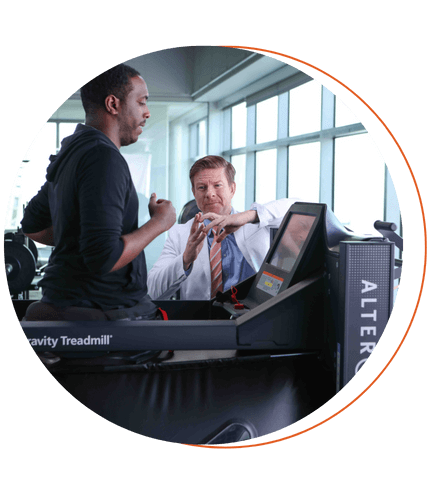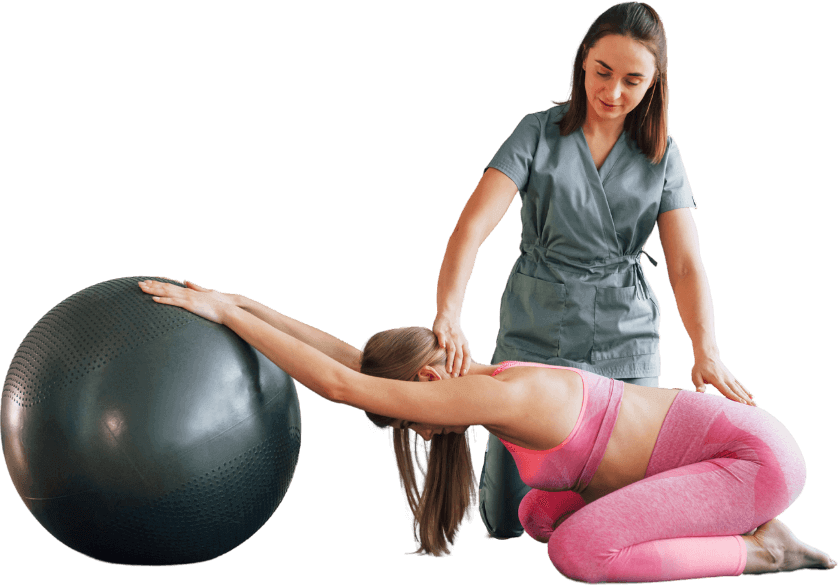What Is a Brain Injury?
A brain injury is literally damage to the brain, which can be caused by a single event or the cumulative effects of common activities. This includes injuries caused by force , an illness targeting brain tissue, or a blood clot.
What Could Cause a Brain Injury?
This might seem like a simple question to answer – but there are a variety of kinds of brain injury.
At its core, there are two forms:
Traumatic Brain Injury (TBI)
This, as you might imagine by the name, is an injury caused by some form of physical trauma. This could be a blow to the head, or something like a motor vehicle accident that causes some level of damage to the brain – concussions also fall under this category. Research shows that falls lead to nearly half of the TBI-related hospitalizations.
Non-Traumatic Brain Injury
A non-traumatic brain injury refers to a type of injury not caused by external forces – it could be the result of a stroke, or illness. Ultimately, if your brain is unable to function as normal for a short period of time, resulting in any form of damage, it would be a non-traumatic brain injury.
Both require medical assistance as soon as possible.
What Are The Symptoms of a Brain Injury?
The symptoms of the injury may vary greatly depending on the exact specifics – if it is a traumatic brain injury, it’ll typically be visually clear that damage has been done. If you’re ever in doubt, after some form of accident, it’s always best to be seen by a medical professional to rule out injury.
You also may experience some less obvious symptoms, like:
- Loss of consciousness
- Persistent headaches
- Dilation of one or both pupils of the eyes
The symptoms of post-stroke impairment can vary depending on the severity or size of brain damage caused by the stroke. But it could include any of the following:
- Muscle weakness
- Instability walking
- Balance issues
- Dizziness
- Difficulty with speech
- Numbness
- Difficulty with movement of extremities
- Tremors
- Vision deficits
- Bowel movement issues
- Cognitive deficits
If this sounds familiar, and you think you may be experiencing post-stroke impairment issues then reach out to our team to discuss your symptoms.
What Are My Treatment Options for Brain Injury?
The treatment options for brain injury will vary depending on the kind of injury you have. They’re broken out below.
Traumatic Brain Injury
These traditional treatments frequently leave individuals with long term disabilities and impairments. In fact, around 80,000 people per year are estimated to be discharged from the hospital with some TBI-related disability.
Here at Parker Performance, we focus on innovative treatment solutions that are designed to help you regain your life. Our therapies like oculomotor training, therapeutic vestibular activities, cognition exercise, coordination therapy, and more have helped our clients recover from TBI related impairments including:
- reduced associated depression
- improved physical function
- return to meaningful activities
Get in touch today to discuss what your custom treatment plan could look like.
Non-Traumatic Brain Injury
The treatment you receive will depend on the practice that you go to, and the severity of your impairment. This should be a custom plan tailored to your needs, goals and how soon after the stroke this is.
Most commonly it will include neurological rehabilitation, which allows patients to re-learn skills and retrain healthy brain cells to control the affected body parts. Non-invasive forms of neurological rehabilitation and treatments, like Transcranial magnetic stimulation, are highly recommended for stroke recovery.
Some of the recovery therapies offered here at Parker Performance Institute include:
- Neurological rehabilitation
- Somatosensory evoked potentials
- Mirror therapy
- Gaiting belts
- Transcranial magnetic stimulation (TMS)
- Interactive metronome
- Endless rope
Frequently Asked Questions about Brain Injury
What are the types of traumatic brain injury?
There are a variety of brain injuries, most commonly falling into these four:
- Concussions
- Brain Contusions
- Penetrating Brain Injuries
- Anoxic Brain Injuries
What is an anoxic brain injury?
Anoxic brain injuries are caused by a complete lack of oxygen to the brain, resulting in the death of brain cells. This is typically considered a non-traumatic brain injury.
How long does it take for a brain injury to heal?
The answer to this can vary depending on the severity, the speed you received treatment and then ultimately the recovery treatment plan given to you. It can be anything from weeks to decades.Brain injuries are surprisingly common, and although our brains feel like a delicate part of our bodies, an injury is absolutely survivable. In fact, the Center for Disease Control and Prevention (CDC) estimates that annually, about 1.5 million Americans survive a traumatic brain injury (TBI).




